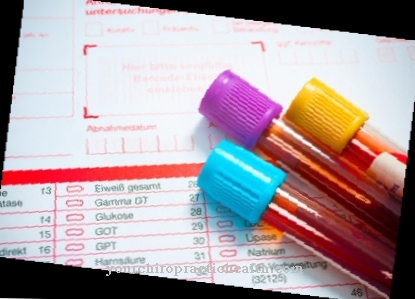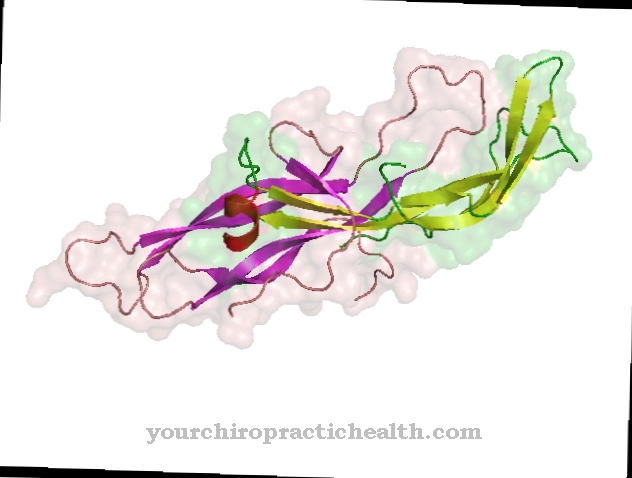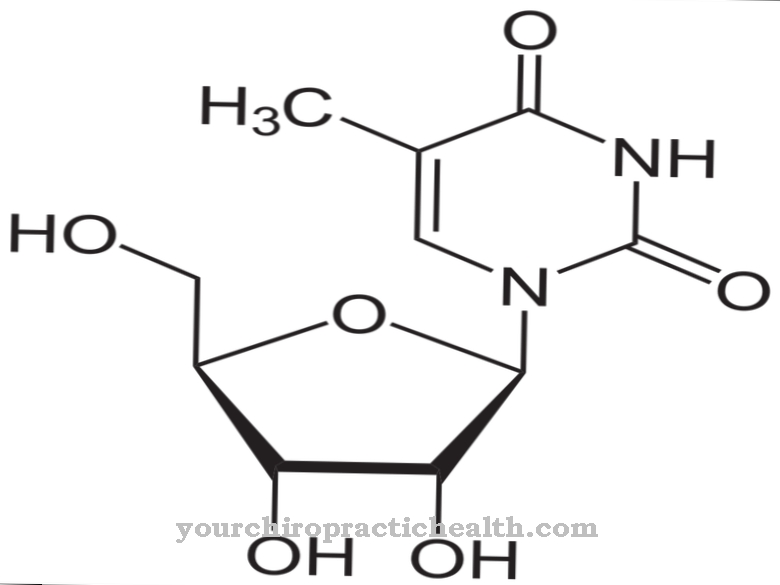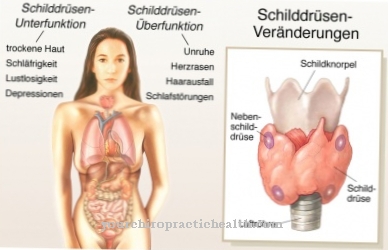The term vitamin B describes a group of eight vitamins that all have different tasks for the body and health. Most of the B vitamins are taken in through food. Certain living conditions can make an increased need necessary.
What is vitamin B & what is its effect?

8 different substances are hidden behind the name vitamin B. The so-called vitamin B complex does not denote a uniform class of vitamins, but a classification of consistently water-soluble substances that act as precursors of coenymes.
The vitamin B complex includes vitamin B1, vitamin B2, vitamin B4, vitamin B5, vitamin B6, vitamin B7, vitamin B11 and vitamin B12. The so-called vitamin B15 is not actually a vitamin. Most of the B vitamins are obtained through food. Some of them can be stored in the liver for a very long time and used for vital processes in the body.
A permanent vitamin B deficiency can lead to serious, sometimes irreparable damage. An overdose, on the other hand, is rather rare, since excess B vitamins are excreted by the body. Since vitamin B is one of the coenzymes and is involved in the formation of various enzymes, the substances are necessary for important metabolic processes in the human body.
They have different meanings. For example, vitamin B6 is the most important substance in the amino acid metabolism.
meaning
The vitamin B complex fulfills essential tasks in the human body and should therefore be available in sufficient quantities for problem-free functioning. Vitamin B1 (thiamine), for example, is needed to optimally utilize food and to maintain the functioning of the nervous system.
It is also known colloquially as the "mood vitamin". A pronounced deficiency can lead to constipation, stomach pain, neurological failures, or memory loss. During pregnancy, for example, there is an increased need for vitamin B1, which should definitely be adequately covered.
Vitamin B2 (riboflavin) is responsible for the breakdown of fat and protein. Alternatively, many people also know it by the name "growth vitamin". If this substance is missing in the body, it leads to cracked and dry skin, burning eyes and torn corners of the mouth.
Vitamin B6 (pyridoxine) is directly involved in protein metabolism. If the substance is missing in the organism, this deficiency manifests itself in nausea, vomiting, dry skin and inflammation of the oral mucosa. Vitamin B12 is significantly involved in blood formation and cell division as well as in the functioning of the nervous system. A small amount of B12 can be formed in the human colon; however, the substance can no longer be used sufficiently by the body at this point.
Too little vitamin B12 intake leads to anemia, concentration disorders or psychotic states. Apart from the actual functions that vitamin B fulfill in the body, the substances are also used as medicines. For example, vitamin B6 is used for menstrual cramps. Preparations that contain selected vitamins from the vitamin B complex are used, for example, for nerve inflammation.
Occurrence in food
A sufficient amount of vitamin B can be supplied to the body through a healthy diet. Vitamins B1, B2, B7 and B12, for example, are contained in dairy products, but also in liver and cereals (whole grain cereals in particular are usually very rich in vitamin B). Fish contains vitamins B2, B3, B5 and B12.
For these reasons, those who follow a vegan diet are particularly at risk of suffering from a vitamin B12 deficiency. In this case, it is recommended to take the substance with the help of food supplements in order to avoid damage caused by a deficiency. However, plant foods also contain certain B vitamins. For example, peas contain vitamins B1 and B3, spinach contains vitamins B6 and B9 and mushrooms contain vitamins B7 and B9.
In order to ensure a sufficient supply of vitamin B, experts recommend a balanced and varied diet. This not only covers the need for B vitamins, but also for all other vitamins and minerals. If there is an increased need or if there is insufficient intake through food, it is possible to consume additional nutritional supplements and thus prevent deficiency symptoms.



.jpg)






















